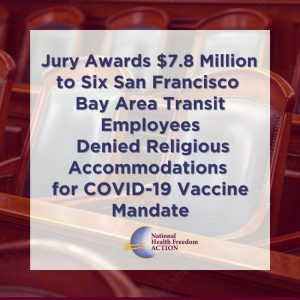The terms “law,” “regulation,” “rule,” and “order” are sometimes used interchangeably, but actually they are not the same. So, we hope this is a helpful guide in understanding the important differences between these terms, terms that reflect the very basic architecture of our great country and its representative government.
Generally, laws are made by elected officials or representatives of the people. For example, laws are passed by the U.S. Congress, state legislatures, and municipal city councils. City laws are referred to as ordinances. The power to write and pass laws is a profound power of the people within a representative government. Citizens’ participation in passing laws is the basis for shaping the future.
Generally, regulations are made by unelected officials from a government agency and are called regulations or administrative rules. The agency gets its power to make regulations and rules from the federal or state legislature which specifically delegates power to that agency to make rules about specific topics. The delegation of power is an important concept in our history and was initially very controversial because we did not want unelected officials to be making laws. So, there were guidelines put in place for rulemaking requiring the agency to have public comment and ability to appeal rules. Because regulations are often monitored and enforced by the agency that made the regulations, they are adjudicated, not by the agency itself, but by what is called an Administrative Law Judge within the Administrative Court system. These contested administrative law cases have rules about how the cases can be referred to the regular court systems if needing appeal. Regulations and rules can be challenged and may not carry the same weight as laws but can be enforced like laws.
Constitution: “the law of the land.”
The U.S. Constitution is a law agreed upon by the founders of our country. And it can only be amended by going through the process that they set forth in the Constitution for amendments.
Federal, State, and Municipal laws
Congress passes laws that set the stage for the future nationwide. For example, it defines what is considered to be a “drug” and what is required for it to go to market. It also passes laws delegating authority of agencies to do specific tasks, for example when it passed the National Childhood Vaccine Injury Act of 1986 – which amended the Public Health Service Act to establish in the Department of Health and Human Services a National Vaccine Program. States pass similar laws that apply to those within their state, for example states define “the practice of medicine” within the state and who can practice the healing arts. And states also pass laws delegating authority to state agencies to do specific tasks, such as emergency management within the state. When a law that is passed by elected officials is challenged, sometimes it is challenged in court and the court’s interpretation of those laws ends up being what is called “case law.”
Federal and State regulations
Since the making of regulations or administrative rules requires a public process, the federal government posts all the public notices in the Federal Register. The states publish their notices in their State Register. Reading these registers provides a deep insight into the workings of agency activities.
Orders are often not associated with a public comment period or process, and they are an interesting category which needs to be watched carefully. Whenever I see the word “order,” I immediately ask myself, who is making the order, and what is their delegation of authority. Without a proper delegation of authority, an order cannot be enforced as law.
Power and Authority
In the past four years our country has undergone a historic challenge to the structure of power and authority within our government and how laws, regulations, and orders impact the lives of the people. The judicial branch of government has become central stage to sorting many things out. Laws passed by Congress and state legislatures have been challenged constitutionally to see if they comply with the law of the land. Federal and state agency regulations have been challenged to see if they were passed with proper procedures for public comment and whether the agency had the proper delegation of authority to even make the regulations. And orders have been challenged claiming there was inadequate delegation of authority for the order to be made. One important outcome of these challenges is that it has raised the awareness of regular people to get to know more about the power of laws and regulations.
“Can they really do that?”
Many people have asked “Can they really do that?” And the answer has required a deep dive into understanding the power structures of the government and the country in which we live. We are a government of the people, and we have to understand and claim our participation in that government so that it continues to reflect our best interest.
Declaration of Independence: “–That to secure these rights, Governments are instituted among Men, deriving their just powers from the consent of the governed, –“
